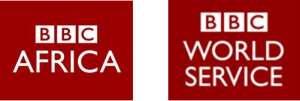
The April edition of BBC Africa Debate – the flagship current affairs discussion programme on BBC World Service radio - will come from Nairobi, Kenya. Presented by Farayi Mungazi and Caroline Barker, the programme can be heard on the BBC World Service on Fri 29 April at 1900GMT and online at bbcafrica.com , listeners can also join in with the discussion by using the hashtag #BBCAfricaDebate on social media.
The call for better management of sport is heard across all of Africa. In athletics, for instance, Kenya has struggled to establish a credible anti-doping system. In football, another leadership wrangle has erupted in Nigeria following the resignation of Sunday Oliseh, the coach of the national team known as the Super Eagles. Elsewhere, Zimbabwe’s footballers will be watching other teams try to qualify for the 2018 World Cup because their country was banned by FIFA after failing to pay a former national coach. So, is there a leadership crisis in African sport? What can be done to improve the management of sport in Africa?
The invited audience will be discussing the subject alongside a guest panel including Samuel Matete (Zambia’s first track and field World Champion), Elyna Shiveka (Deputy Chair of Kenya’s Hockey team), Hassan Wario (Kenyan Minister for Sport) and Jacob 'Ghost' Mulee (Ex-footballer and coach of Kenya's national football team).
The programme will be broadcast at 1900GMT on Friday 29 April and available online after broadcast. [It will be recorded on Weds 27 April]
BBC Africa Debate is a monthly programme looking at the current issues that matter to Africa and bringing them to a global audience. Recorded on location around Africa and covering a wide range of topics, an invited audience engages robustly with a distinguished international panel.
BBC World Service’s BBC Africa hub brings together the production of multilingual content about the continent on radio, on TV and online on bbcafrica.com . As it delivers content in English, French, Hausa, Kinyarwanda, Kirundi, Somali and Kiswahili, BBC Africa ensures a pan-African approach to the output, offering its audiences opportunities to join the global conversation. BBC Africa has teams based in London and across much of sub-Saharan Africa, and has well established production centres in various cities.
Follow BBC Africa on Twitter , Facebook , Google + , Instagram , Soundcloud and YouTube .
BBC World Service delivers news contentaround the world in English and 28 other language services, on radio, TV and digital, reaching a weekly audience of210 million.
The BBC attracts a weekly global news audience of 283 million people to its international news services including BBC World Service, BBC World News television channel and bbc.com/news .




 Whoever participated in the plunder of the state must be held accountable – Jane...
Whoever participated in the plunder of the state must be held accountable – Jane...
 A vote for John and Jane is a vote to pull Ghana from the precipice of destructi...
A vote for John and Jane is a vote to pull Ghana from the precipice of destructi...
 I’ll repay your abiding confidence with loyalty, understanding and a devotion to...
I’ll repay your abiding confidence with loyalty, understanding and a devotion to...
 ‘I’ve learnt deeply useful lessons for the future' — Serwaa Amihere breaks silen...
‘I’ve learnt deeply useful lessons for the future' — Serwaa Amihere breaks silen...
 I’m sorry for the embarrassment – Serwaa Amihere apologises for leaked sex video
I’m sorry for the embarrassment – Serwaa Amihere apologises for leaked sex video
 Dumsor: Matthew Opoku Prempeh not in charge of Energy sector – Minority
Dumsor: Matthew Opoku Prempeh not in charge of Energy sector – Minority
 Adu Boahen’s murder: Police arrest house help who was in possession of deceased’...
Adu Boahen’s murder: Police arrest house help who was in possession of deceased’...
 Akufo-Addo nominates Felicia Attipoe as Tema West MCE
Akufo-Addo nominates Felicia Attipoe as Tema West MCE
 Election 2024: I can't have someone I defeated twice as my successor – Akufo-Add...
Election 2024: I can't have someone I defeated twice as my successor – Akufo-Add...
